
Yakima: The Heart of Washington's Wine Country
Nestled in the fertile Yakima Valley, Yakima is a charming city known for its vibrant agriculture, burgeoning wine industry, and stunning natural landscapes. As the sunniest city in Washington State, Yakima offers an inviting climate perfect for outdoor activities and exploration. Whether you're a wine enthusiast, an outdoor adventurer, or a lover of fresh, local food, Yakima has something special to offer. Yakima's wine country is a must-visit, boasting over 120 wineries and vineyards. Take a scenic drive through rolling hills and lush vineyards, stopping to sample award-winning wines along the way. The Yakima Valley AVA is renowned for producing some of the country's best wines, particularly its Merlot, Cabernet Sauvignon, and Syrah. For those seeking outdoor adventures, Yakima provides ample opportunities. The Yakima Greenway offers miles of walking, biking, and hiking trails that wind along the Yakima River. Nearby, Mount Rainier and the Cascade Mountains provide stunning backdrops for hiking, skiing, and wildlife watching. Don't miss out on the chance to explore Yakima's numerous parks and nature reserves, where you can enjoy bird watching, fishing, and picnicking. Yakima's downtown area is a vibrant hub of activity, featuring a mix of historic architecture, boutiques, art galleries, and local eateries. The Yakima Farmers Market is a highlight, offering fresh produce, handmade crafts, and delicious food from local vendors. Year-round events and festivals, such as the Central Washington State Fair and Fresh Hop Ale Festival, add to the city's lively atmosphere. With its rich agricultural heritage, Yakima is also a haven for food lovers. The valley's orchards produce a bounty of apples, cherries, and other fruits, which you can sample at local farm stands and U-pick farms. Culinary enthusiasts will enjoy the diverse dining scene, which features farm-to-table restaurants, craft breweries, and artisanal food shops.
Local tips in Yakima
- Visit during the harvest season (late summer to early fall) to enjoy fresh produce and wine tasting events.
- Pack comfortable walking shoes for exploring the Yakima Greenway and downtown area.
- Check out the local festivals and events calendar to make the most of your visit.
- Don't forget sunscreen and a hat, as Yakima enjoys plenty of sunshine.
- Rent a bike to explore the scenic trails and vineyards at your own pace.
- Make time to visit the Yakima Valley Museum to learn about the region's history and culture.
- Sample local craft beers at one of Yakima's many breweries, known for their use of local hops.
Yakima: The Heart of Washington's Wine Country
Nestled in the fertile Yakima Valley, Yakima is a charming city known for its vibrant agriculture, burgeoning wine industry, and stunning natural landscapes. As the sunniest city in Washington State, Yakima offers an inviting climate perfect for outdoor activities and exploration. Whether you're a wine enthusiast, an outdoor adventurer, or a lover of fresh, local food, Yakima has something special to offer. Yakima's wine country is a must-visit, boasting over 120 wineries and vineyards. Take a scenic drive through rolling hills and lush vineyards, stopping to sample award-winning wines along the way. The Yakima Valley AVA is renowned for producing some of the country's best wines, particularly its Merlot, Cabernet Sauvignon, and Syrah. For those seeking outdoor adventures, Yakima provides ample opportunities. The Yakima Greenway offers miles of walking, biking, and hiking trails that wind along the Yakima River. Nearby, Mount Rainier and the Cascade Mountains provide stunning backdrops for hiking, skiing, and wildlife watching. Don't miss out on the chance to explore Yakima's numerous parks and nature reserves, where you can enjoy bird watching, fishing, and picnicking. Yakima's downtown area is a vibrant hub of activity, featuring a mix of historic architecture, boutiques, art galleries, and local eateries. The Yakima Farmers Market is a highlight, offering fresh produce, handmade crafts, and delicious food from local vendors. Year-round events and festivals, such as the Central Washington State Fair and Fresh Hop Ale Festival, add to the city's lively atmosphere. With its rich agricultural heritage, Yakima is also a haven for food lovers. The valley's orchards produce a bounty of apples, cherries, and other fruits, which you can sample at local farm stands and U-pick farms. Culinary enthusiasts will enjoy the diverse dining scene, which features farm-to-table restaurants, craft breweries, and artisanal food shops.
When is the best time to go to Yakima?
Iconic landmarks you can’t miss
Cowiche Canyon Kitchen & Ice House Bar
Experience the flavors of Yakima at Cowiche Canyon Kitchen & Ice House Bar, where American cuisine meets a vibrant bar atmosphere.
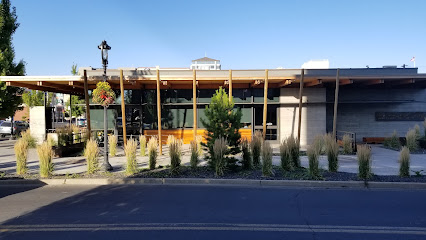
Yakima SunDome
Discover the vibrant energy of Yakima SunDome, the premier arena for sports and live entertainment in Washington, perfect for all ages.
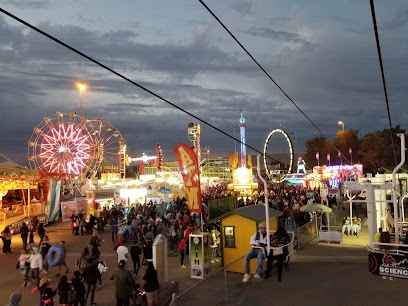
Famous Burger & Teriyaki Sandwich
Discover the delicious burgers and teriyaki sandwiches at Famous Burger & Teriyaki Sandwich in Yakima, where flavor meets affordability in a casual dining experience.
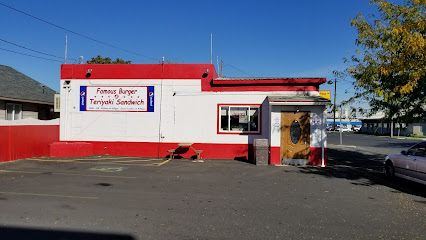
Franklin Park
Explore the natural beauty and recreational delights of Franklin Park, a serene escape in Yakima, Washington, perfect for outdoor enthusiasts and families.

Yakima Area Arboretum
Explore the Yakima Area Arboretum, a beautiful botanical garden showcasing diverse plant species and serene walking trails in the heart of Washington.
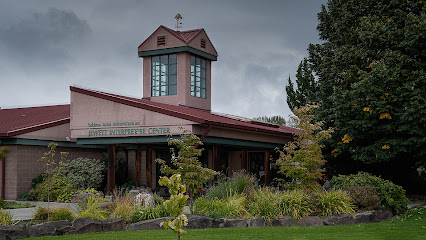
North Town Coffeehouse
Experience the charm of Yakima at North Town Coffeehouse, where great coffee meets a warm and inviting atmosphere.
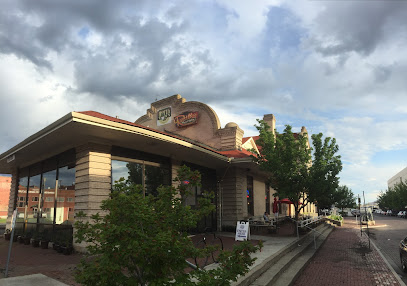
Backwoods Cafe
Experience the best of American and Mexican breakfast at Backwoods Cafe in Yakima, where every bite is a delightful culinary adventure.
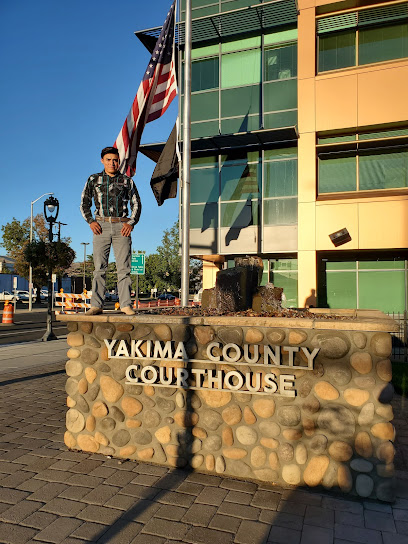
Yakima Sportsman State Park
Discover the natural wonders of Yakima Sportsman State Park, a stunning destination for camping, hiking, and outdoor adventures in Washington's picturesque Yakima Valley.
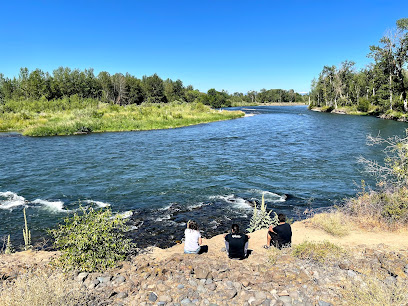
Capitol Theatre
Experience the vibrant performing arts scene at Capitol Theatre in Yakima, WA, where culture and entertainment come alive in a historic setting.
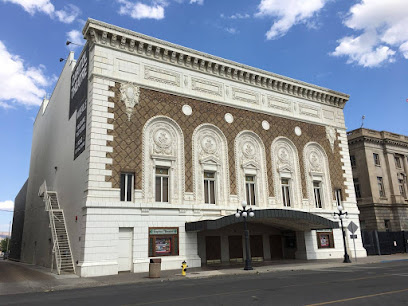
Mercedes & Family
Experience authentic Mexican cuisine at Mercedes & Family in Yakima, where delicious flavors and a cozy atmosphere await you.
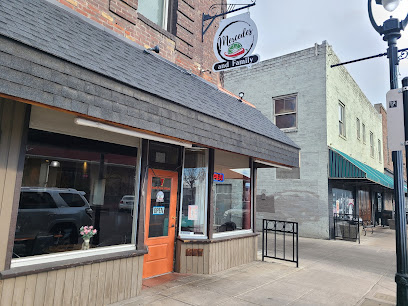
Kiwanis Park
Discover the beauty of Kiwanis Park in Yakima, a tranquil retreat offering lush landscapes, recreational activities, and vibrant community events for all ages.
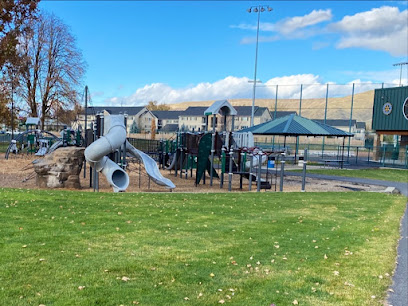
Crafted
Indulge in a unique culinary experience at Crafted, Yakima's premier restaurant offering ever-changing menus and delightful takeout options.
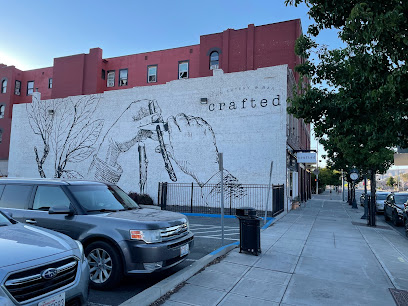
E.Z Tiger
Discover the exquisite flavors of Asia at E.Z Tiger, Yakima's top destination for authentic dim sum and noodles in a vibrant setting.
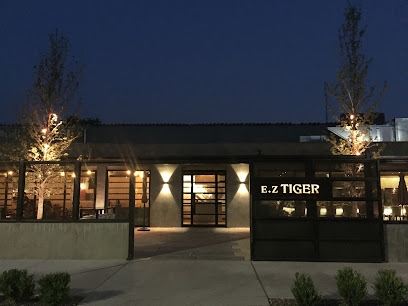
Golden Wheel Restaurant
Savor the authentic flavors of Chinese cuisine at Golden Wheel Restaurant in Yakima, Washington, where tradition meets taste in every dish.
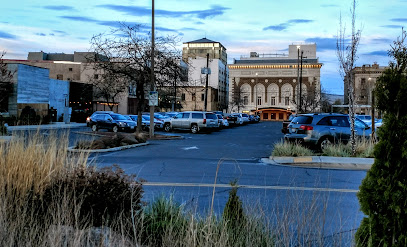
Yakima Convention & Event Center
Explore the Yakima Convention & Event Center, your gateway to diverse events and vibrant local culture in Yakima, Washington.
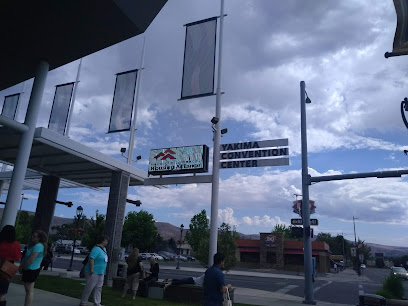
Unmissable attractions to see
Franklin Park
Experience the natural beauty and recreational charm of Franklin Park, Yakima's premier destination for relaxation and outdoor fun.
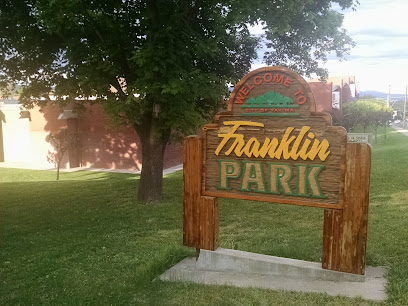
Yakima Area Arboretum
Explore the Yakima Area Arboretum: A 46-acre haven of botanical beauty, community events, and educational experiences in Washington's scenic Yakima Valley.
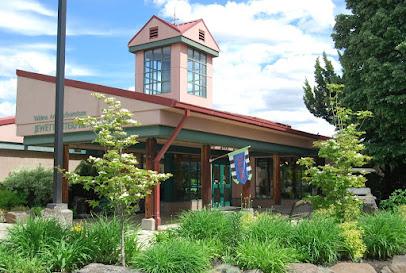
Yakima Area Arboretum
Explore the Yakima Area Arboretum, a beautiful botanical garden and nature preserve that highlights the Pacific Northwest's diverse flora and tranquil landscapes.
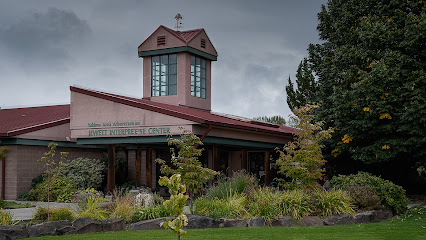
Chesterley Park
Discover the beauty and tranquility of Chesterley Park, a perfect blend of nature and recreation in the heart of Yakima, Washington.
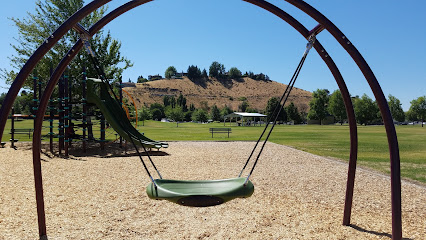
Sarg Hubbard Park
Discover the natural beauty and recreational offerings of Sarg Hubbard Park, a must-visit oasis in Yakima, Washington, perfect for all ages.
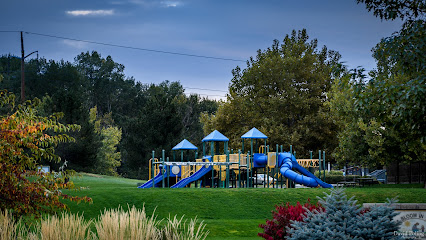
Yakima Family Fun Center
Experience endless fun at Yakima Family Fun Center with go-karts, mini-golf, batting cages, and more in Yakima, Washington.
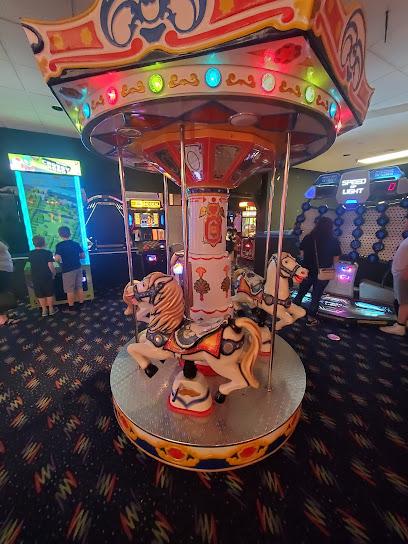
Yakima Sportsman State Park
Explore the breathtaking landscapes and outdoor adventures at Yakima Sportsman State Park, a perfect getaway for nature lovers in Washington.
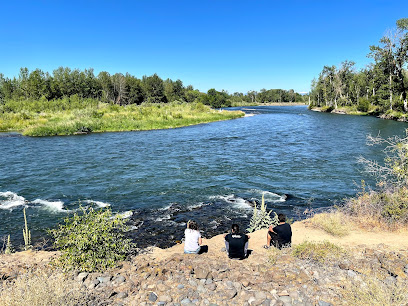
Kiwanis Park
Explore Kiwanis Park in Yakima, a tranquil retreat featuring lush greenery, recreational activities, and scenic picnic spots for nature lovers and families.
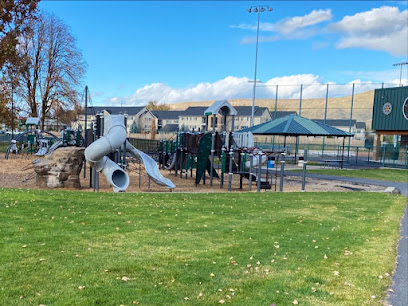
Yakima Valley Museum
Explore the cultural tapestry of Yakima Valley at the Yakima Valley Museum, where history comes alive through engaging exhibits and rich storytelling.
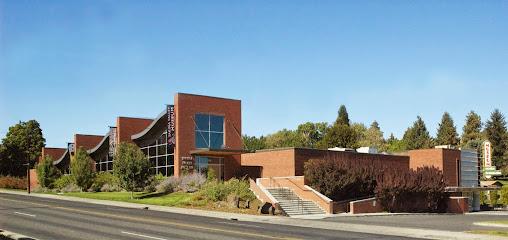
Yakima Valley Museum
Explore the Yakima Valley Museum, where local history and culture come to life through engaging exhibits and interactive displays.
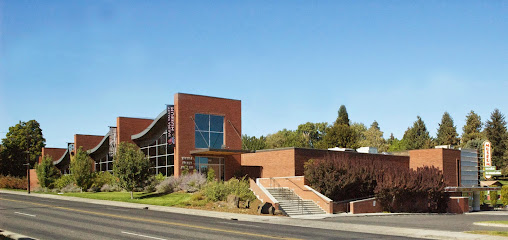
The Seasons Performance Hall
Discover the cultural heartbeat of Yakima at The Seasons Performance Hall, where live performances bring the community together in an unforgettable experience.
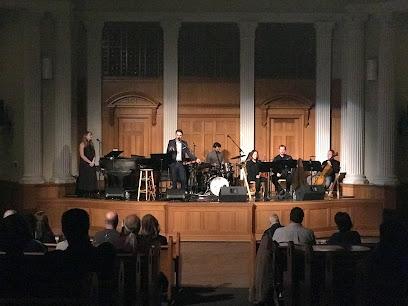
Cowiche Canyon Trail
Explore the breathtaking Cowiche Canyon Trail in Yakima, WA, where stunning landscapes and outdoor adventures await every nature lover.
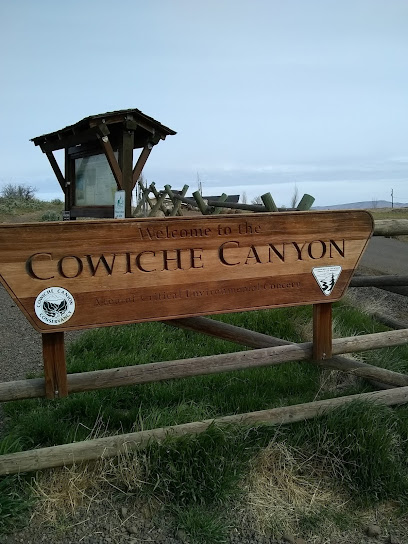
VanArnam Vineyards
Experience the beauty and flavor of Washington's wine country at VanArnam Vineyards, where stunning views meet exquisite wines.
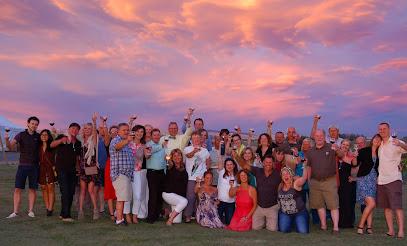
Arboretum & Botanical Garden
Explore the stunning Arboretum & Botanical Garden in Yakima, WA, a serene sanctuary showcasing diverse plant life and seasonal beauty.
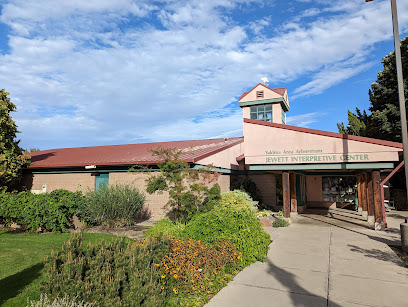
Yakima Valley Trolleys Powerhouse Museum
Explore Yakima's rich railway history at the Yakima Valley Trolleys Powerhouse Museum, featuring vintage trolleys and engaging exhibits.
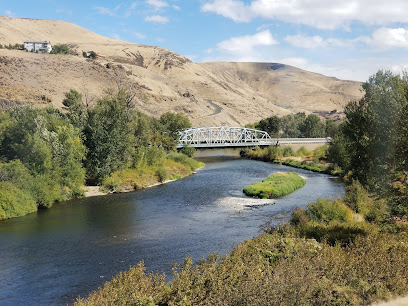
Essential places to dine
Olive Garden Italian Restaurant
Experience authentic Italian cuisine at Olive Garden Yakima - where every meal feels like family!
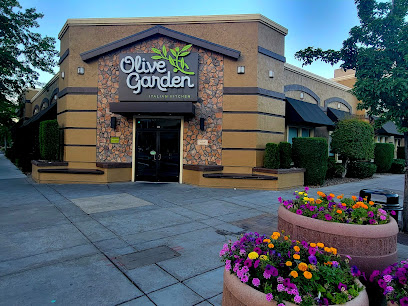
Cowiche Canyon Kitchen & Ice House Bar
Discover Cowiche Canyon Kitchen & Ice House Bar in Yakima: where American cuisine meets vibrant nightlife in a cozy atmosphere.
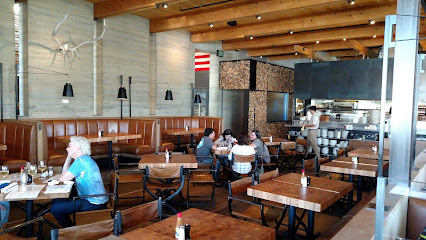
El Mirador 2
Experience the vibrant flavors of Mexico at El Mirador 2 in Yakima – where every meal tells a story.
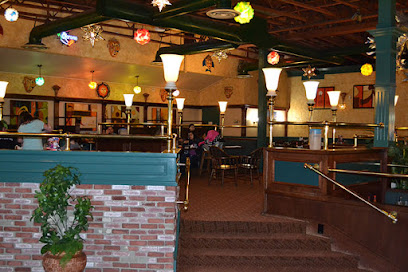
Bob's Burgers & Brew - Yakima
Discover delicious gourmet burgers and American classics at Bob's Burgers & Brew in Yakima – perfect for families and food lovers!
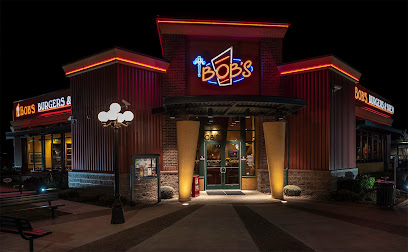
Mel's Diner
Discover Mel's Diner in Yakima - your go-to spot for hearty American breakfasts served with warmth and nostalgia.
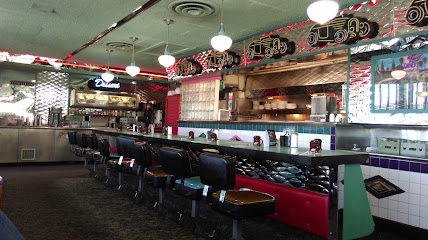
Waffles Caffe
Experience delightful breakfasts at Waffles Caffe in Yakima - famous for its mouthwatering waffles and welcoming atmosphere.
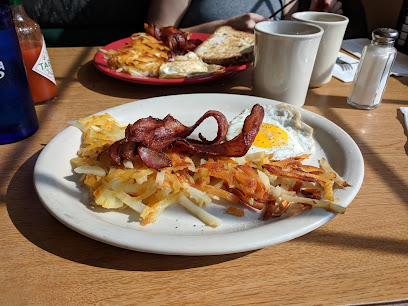
Yakima Steak Company
Discover exceptional steaks and local flavors at Yakima Steak Company—your ultimate dining destination in Yakima.
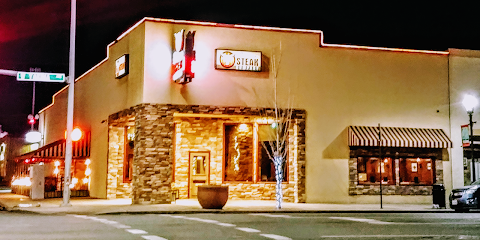
Second Street Grill
Discover delectable grilled dishes and local flavors at Second Street Grill in Yakima – where every meal is a celebration of taste.
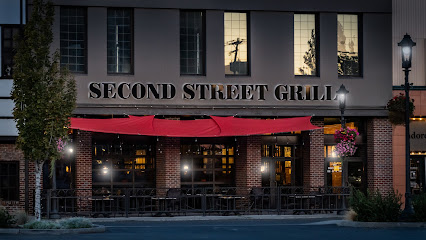
Powerhouse Grill
Experience the best of American cuisine at Powerhouse Grill – where delicious breakfasts and seafood await you in Yakima.
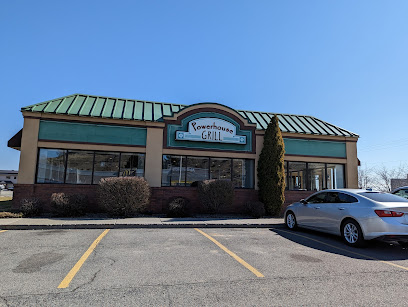
Red Lobster
Experience the ultimate seafood feast at Red Lobster in Yakima - where freshness meets flavor in every bite!
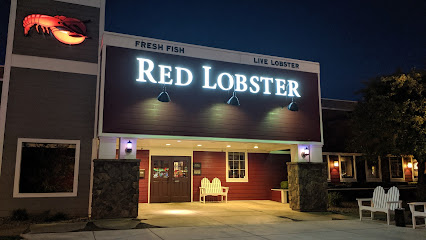
Famous Burger & Teriyaki Sandwich
Discover Yakima's culinary gem - Famous Burger & Teriyaki Sandwich offers delicious burgers and unique teriyaki delights in a cozy setting.
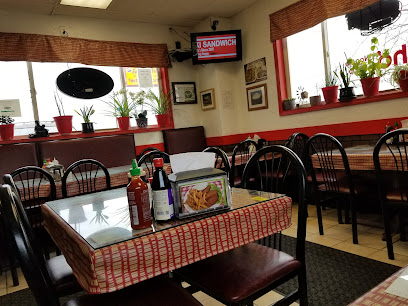
WaterFire Restaurant & Bar
Experience Yakima's finest flavors at WaterFire Restaurant & Bar - where local ingredients meet exceptional cuisine.
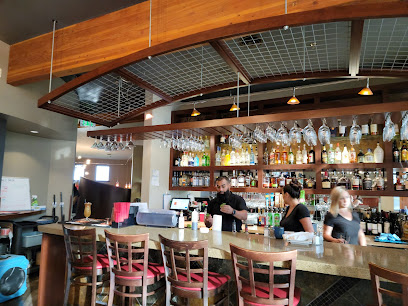
Zesta Cucina
Experience authentic Italian dining at Zesta Cucina in Yakima—where every meal is a celebration of flavor and tradition.
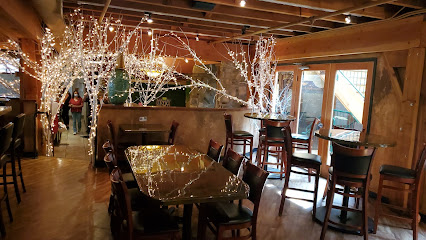
Yakima Antojitos Mexicanos
Experience authentic Mexican cuisine at Yakima Antojitos Mexicanos—where every bite transports you to the heart of Mexico.
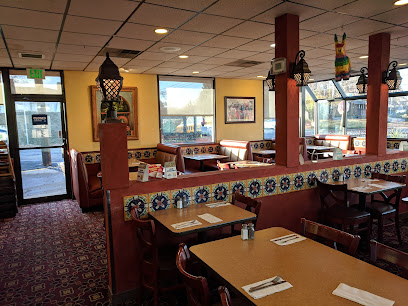
Taj Palace
Discover authentic Indian flavors at Taj Palace in Yakima - where every dish tells a story and every meal is an experience.
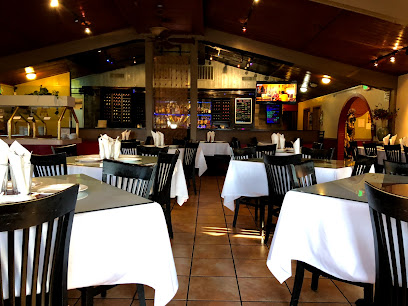
Markets, malls and hidden boutiques
Valley Mall
Explore Valley Mall in Union Gap, WA: a vibrant shopping destination with diverse stores, delicious dining, and entertainment for every visitor.
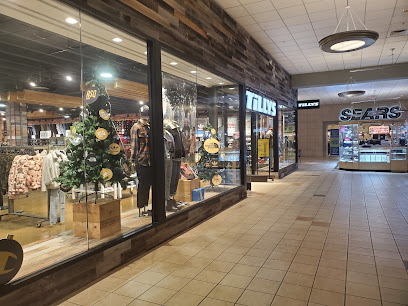
Target
Explore Target in Yakima for diverse shopping, from fashion to home goods, all in one vibrant location.
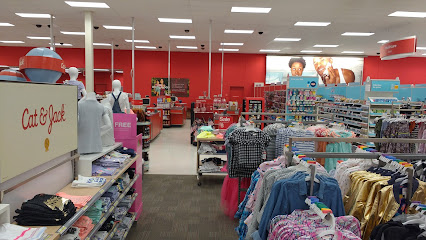
Sweet Relief CBD, Wellness, Gifts
Explore Sweet Relief CBD in Yakima, WA for a unique selection of wellness products and artisanal gifts, blending health and creativity in one charming boutique.
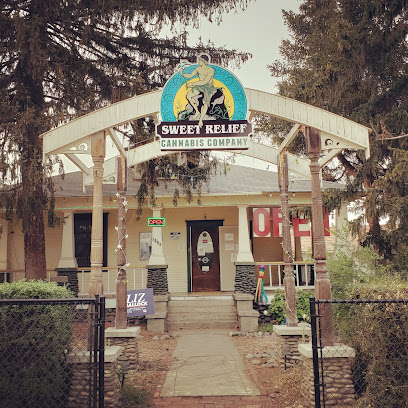
Westpark Shopping Center
Discover the ultimate shopping experience at Westpark Shopping Center in Yakima, WA - a vibrant hub for retail, dining, and entertainment.
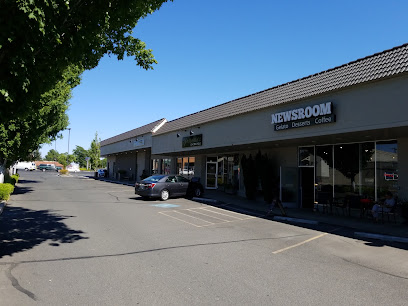
Inklings Bookshop
Discover a literary treasure trove at Inklings Bookshop in Yakima, where every corner invites you to explore the world of books.
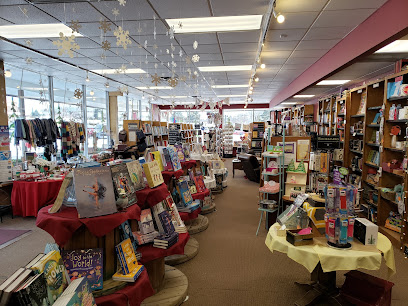
Lighthouse Thrift
Explore Lighthouse Thrift in Yakima, WA for a unique shopping experience filled with antiques, vintage finds, and second-hand treasures.
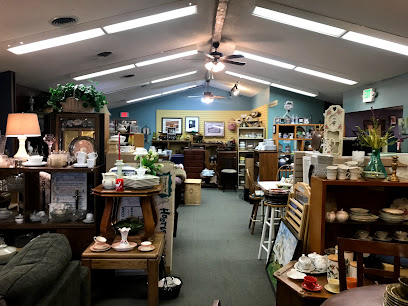
Summit Thrift
Discover unique treasures and sustainable shopping at Summit Thrift in Yakima, Washington, where every item has a story.
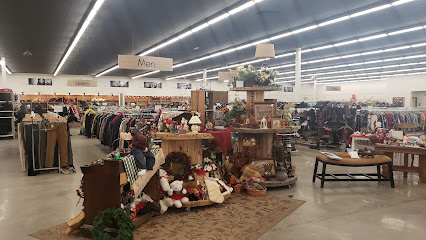
Yakima Indoor Mart
Explore Yakima Indoor Mart: A unique shopping destination offering a diverse selection of local and everyday goods in Yakima, Washington.
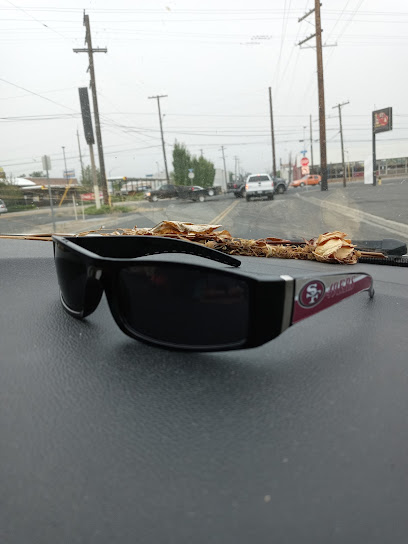
Three Sisters Metaphysical Arts
Explore the enchanting world of spirituality at Three Sisters Metaphysical Arts in Yakima, a haven for metaphysical supplies and holistic healing.
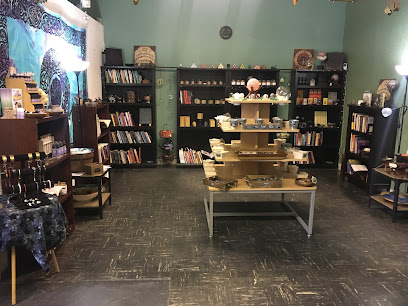
Fiddlesticks
Explore Fiddlesticks in Yakima, a charming gift shop filled with unique treasures and local crafts perfect for souvenirs and gifts.
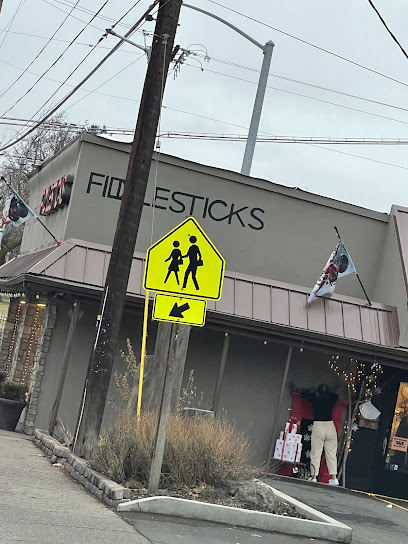
Yesterday's Village
Discover Yesterday's Village in Yakima, WA - a charming antique store brimming with unique treasures and vintage finds for every enthusiast.
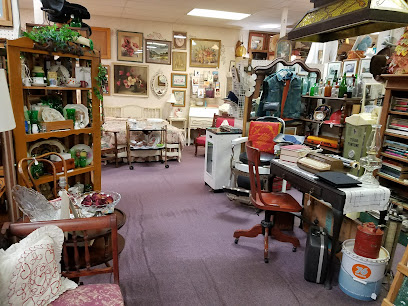
LADY GODIVA'S CONSIGNMENT BOUTIQUE
Explore unique women's clothing and accessories at Lady Godiva's Consignment Boutique in Yakima, where style meets sustainability.
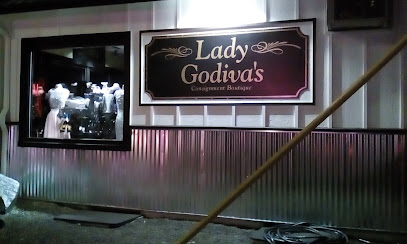
Churchill's Booklover's Haunt
Explore the enchanting world of books and antiques at Churchill's Booklover's Haunt in Yakima, a perfect retreat for every literature lover.
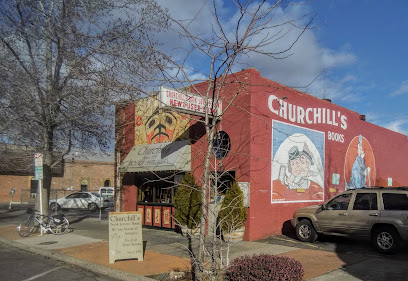
NewYakCity
Discover NewYakCity in Yakima, WA - your ultimate destination for skateboards and stylish vintage clothing.
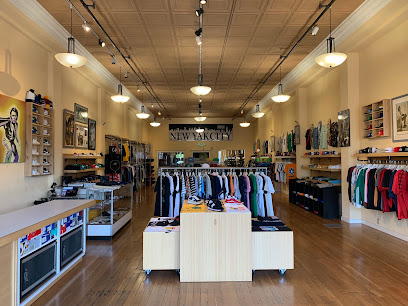
The Little Soapmaker
Explore the artistry of handmade soaps and skincare at The Little Soapmaker in Yakima, where quality meets creativity in every product.
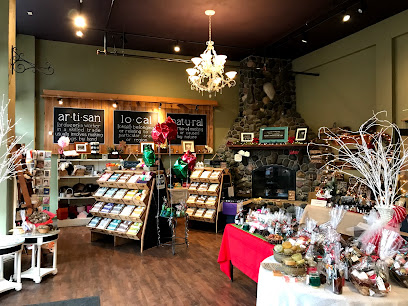
Essential bars & hidden hideouts
Cowiche Canyon Kitchen & Ice House Bar
Experience the taste of Yakima at Cowiche Canyon Kitchen & Ice House Bar, where American cuisine meets local charm in a vibrant setting.
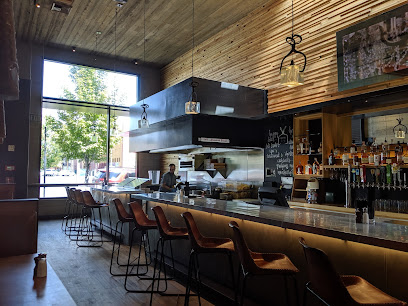
Second Street Grill
Experience the best of Yakima's local cuisine at Second Street Grill, renowned for its flavorful grilled dishes and welcoming atmosphere.
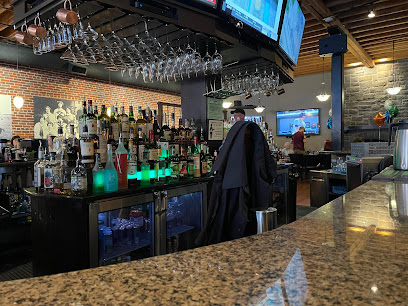
Bill's Place
Experience the vibrant flavors of Yakima at Bill's Place, a top-notch grill and bar offering delicious American cuisine and a lively atmosphere.
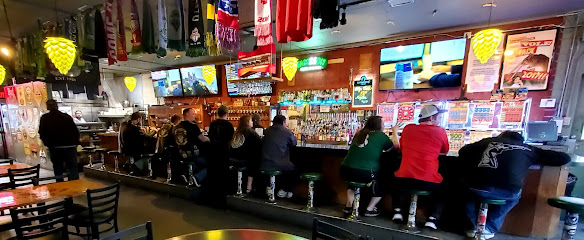
The Dutch
Discover the vibrant flavors of Yakima at The Dutch, a grill that offers a delightful range of dishes in a cozy atmosphere perfect for everyone.
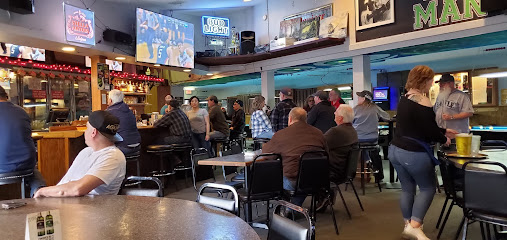
McGuire's Irish Restaurant And Pub
Discover the heart of Irish culture at McGuire's Irish Restaurant And Pub, where delicious food and vibrant atmosphere meet in Yakima.
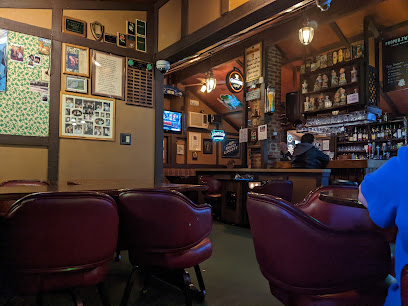
Hoops
Experience the vibrant nightlife at Hoops, Yakima's favorite bar for craft drinks and a lively atmosphere.
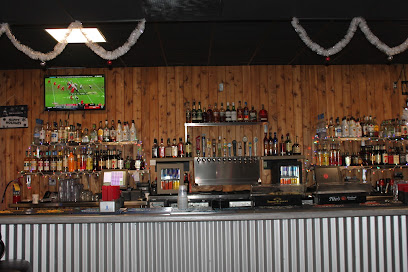
The Pub of Yakima
Discover the vibrant flavors of Yakima at The Pub of Yakima, where local ingredients meet a lively dining atmosphere.
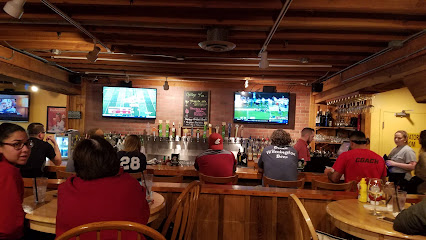
The Sports Center
Experience the excitement and flavors at The Sports Center in Yakima, the ultimate destination for sports fans and food lovers.
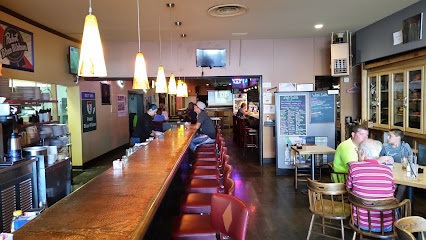
Public House of Yakima
Experience Yakima's local flavors at the Public House, a vibrant pub offering craft beers and delicious cuisine in a welcoming atmosphere.
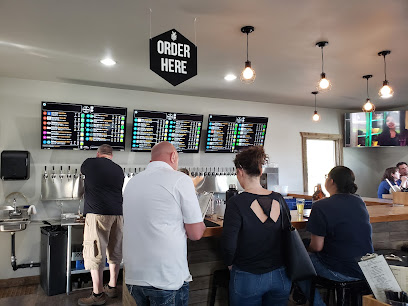
The Warehouse Sports Bar and Grill
Experience the ultimate sports dining at The Warehouse Sports Bar and Grill in Yakima, where delicious grilled dishes and enthusiastic fans come together.
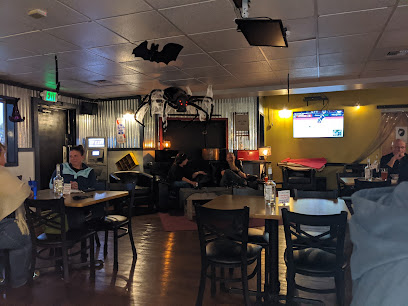
West Valley Bar & Grill
Discover the vibrant atmosphere and delicious grilled dishes at West Valley Bar & Grill, a must-visit dining spot in Yakima, Washington.
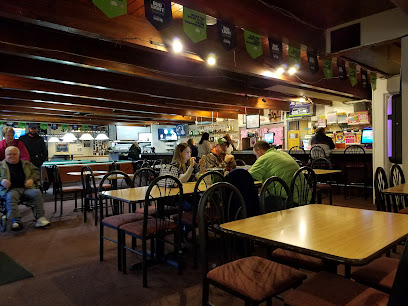
Brews & Cue's
Experience the lively ambiance and diverse drink selection at Brews & Cue's, a top bar in Yakima, WA, perfect for relaxation and socializing.
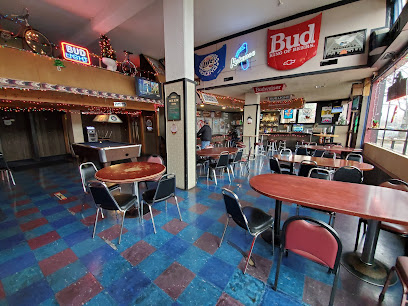
The Tap
Discover the vibrant atmosphere of The Tap, Yakima's premier beer hall with a diverse selection of craft beers and delicious snacks.
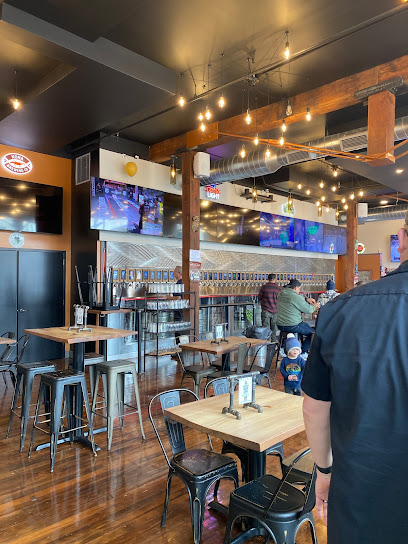
Mickey's Pub
Discover the vibrant atmosphere of Mickey's Pub in Yakima, where local flavors and friendly service create an unforgettable dining experience.
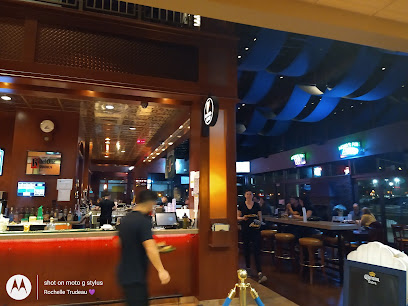
Local Phrases
-
- HelloYakima Salutations
[yuh-kih-muh sah-loo-tay-shuns] - GoodbyeSee ya
[see yah] - YesYep
[yep] - NoNope
[nohp] - Please/You're welcomePlease n' thank ya
[pleez n' thangk yah] - Thank youThanks a bunch
[thangs uh buhnch] - Excuse me/SorryPardon me
[pahr-dun me] - How are you?How ya doin'?
[how yah doo-in] - Fine. And you?Doin' alright. How 'bout you?
[doo-in all-ryt. how 'bout yoo] - Do you speak English?Ya speak English?
[yah speak ing-glish] - I don't understandI'm lost
[ahm lost]
- HelloYakima Salutations
-
- I'd like to see the menu, pleaseCan I check out the menu?
[kan eye chek out thee men-yoo] - I don't eat meatI'm veggie
[ahm veh-jee] - Cheers!Cheers!
[cheers] - I would like to pay, pleaseCan I settle up, please
[kan eye set-ul up pleez]
- I'd like to see the menu, pleaseCan I check out the menu?
-
- Help!Help!
[help] - Go away!Scram!
[skram] - Call the Police!Ring the cops!
[ring thee cops] - Call a doctor!Get a doc!
[get uh dok] - I'm lostI'm lost
[ahm lost] - I'm illI'm feelin' under the weather
[ahm feel-in un-der thee weh-thur]
- Help!Help!
-
- I'd like to buy...I'm lookin' to purchase...
[ahm look-in tuh per-chays] - I'm just lookingJust browsin'
[just brow-zin] - How much is it?What's the damage?
[whats thee dam-ij] - That's too expensiveThat's spendy
[thats spen-dee] - Can you lower the price?Can ya knock sum off?
[kan yah nok sum off]
- I'd like to buy...I'm lookin' to purchase...
-
- What time is it?What's the time?
[whats thee time] - It's one o'clockIt's one
[its one] - Half past (10)Half past ten
[half past ten] - MorningMornin'
[morn-in] - AfternoonAfternoon
[after-noon] - EveningEvenin'
[even-in] - YesterdayYestuh-day
[yes-tuh-day] - TodayToday
[to-day] - TomorrowTomorruh
[tom-or-uh] - 1One
[wun] - 2Two
[too] - 3Three
[three] - 4Four
[for] - 5Five
[fahyv] - 6Six
[siks] - 7Seven
[sev-uhn] - 8Eight
[ayt] - 9Nine
[nine] - 10Ten
[ten]
- What time is it?What's the time?
-
- Where's a/the...?Where's the... at?
[wheres thee at] - What's the address?What's the addy?
[whats thee add-ee] - Can you show me (on the map)?Can ya show me (on the map)?
[kan yah show mee] - When's the next (bus)?When's the next (bus) comin'?
[whens thee next com-in] - A ticket (to ....)A ticket (to ....)
[uh tik-it (to)]
- Where's a/the...?Where's the... at?
History of Yakima
-
Long before European settlers arrived, the Yakama Nation, a confederation of several Native American tribes, thrived in the Yakima Valley. The Yakama people have lived in the region for thousands of years, drawing sustenance from the area's abundant natural resources. They fished in the rivers, hunted in the forests, and gathered roots and berries in the valleys. Their rich cultural heritage and deep connection to the land are still evident in the region today.
-
The first European settlers arrived in the Yakima Valley in the early 19th century. These pioneers were primarily fur traders and missionaries. The establishment of Fort Simcoe in 1856 marked a significant turning point, as it became a central point for trade and interaction between settlers and the Yakama Nation. The fort was also a military outpost designed to enforce the treaties signed with the indigenous tribes.
-
The Yakama War (1855-1858) was a pivotal conflict between the Yakama Nation and the United States government, sparked by increasing encroachment on tribal lands and resources. The war ended with the Yakama Nation being forced onto a reservation, as outlined in the Treaty of 1855. Despite the treaty, tensions and conflicts over land and resources continued for many years.
-
In the late 19th and early 20th centuries, Yakima Valley transformed into a thriving agricultural hub. The construction of the Sunnyside Canal and other irrigation projects in the early 1900s enabled large-scale farming. The valley's fertile soil and favorable climate made it an ideal location for growing a variety of crops, including apples, hops, and wine grapes, which remain key industries in the region today.
-
The city of Yakima was officially incorporated in 1883 and quickly became a central hub for commerce and transportation. The arrival of the Northern Pacific Railway in 1884 further accelerated growth, connecting Yakima to larger markets and facilitating the export of its agricultural products. Over the years, the city has continued to grow and diversify, with a robust local economy and a rich cultural scene.
-
Yakima is host to a variety of cultural festivals and events that celebrate its diverse heritage. The Central Washington State Fair, held annually in Yakima, attracts visitors from across the region with its agricultural exhibits, concerts, and rodeos. The Yakima Folklife Festival and Fresh Hop Ale Festival are other popular events that highlight the area's cultural and agricultural traditions.
-
Today, Yakima is a vibrant community that blends its rich historical heritage with modern innovation. The city is home to a thriving arts scene, numerous wineries and breweries, and a growing tech industry. Efforts to preserve and promote the history and culture of the Yakama Nation continue to be an important aspect of the community. The Yakima Valley Museum and other cultural institutions play a key role in educating residents and visitors about the region's past.
Yakima Essentials
-
Yakima is located in Central Washington and can be accessed by various means. The closest major airport is Seattle-Tacoma International Airport (SEA), about 150 miles west of Yakima. From Seattle, you can rent a car or take a bus to Yakima. The Yakima Air Terminal-McAllister Field (YKM) also offers limited commercial flights connecting to Seattle. Yakima is accessible by major highways, notably Interstate 82, which connects to Interstate 90 and Interstate 84.
-
Yakima offers several transportation options. The Yakima Transit system provides bus services within the city and to nearby areas. Taxis and rideshare services like Uber and Lyft are also available. For more flexibility, consider renting a car, especially if you plan to explore the surrounding wine country and outdoor attractions. Biking is another popular mode of transport, with several bike-friendly routes throughout the city.
-
The official currency is the United States Dollar (USD). Credit and debit cards are widely accepted in Yakima, including in most hotels, restaurants, and shops. ATMs are plentiful, but it's advisable to carry some cash for smaller establishments and local markets. Mobile payment options like Apple Pay and Google Wallet are also increasingly popular.
-
Yakima is generally a safe city for tourists, but it's important to exercise standard precautions. Avoid walking alone at night in unfamiliar areas and keep an eye on your belongings in crowded places. Certain neighborhoods, such as parts of East Yakima, have higher crime rates and should be approached with caution. Always stay vigilant and aware of your surroundings.
-
In case of emergency, dial 911 for immediate assistance. Yakima has several medical facilities, including Yakima Valley Memorial Hospital and Virginia Mason Memorial. Pharmacies are widely available for minor health issues. It is recommended to have travel insurance that covers medical emergencies. The local police station is also available for assistance.
-
Fashion: Do dress in layers, as the weather can vary. Casual attire is generally acceptable. Avoid overly revealing clothing. Religion: Do respect local customs and traditions. There are various places of worship, so be considerate. Public Transport: Do be polite and respectful on public transit. Offer your seat to elderly passengers. Avoid eating or drinking on buses. Greetings: Do greet people with a friendly smile or a handshake. Yakima residents are generally warm and welcoming. Eating & Drinking: Do try local foods and wine. Yakima is known for its wineries and fresh produce. Don't forget to tip, as it is customary in the U.S.
-
To experience Yakima like a local, visit the Yakima Farmers Market for fresh produce and local crafts. Explore the Yakima Greenway for outdoor activities like biking and walking. Attend local events such as the Central Washington State Fair or the Fresh Hop Ale Festival. Don't miss out on the Yakima Valley wine tours, which offer a taste of the region's renowned wines.
Trending Landmark in Yakima
-
Cowiche Canyon Kitchen & Ice House Bar
-
Yakima SunDome
-
Famous Burger & Teriyaki Sandwich
-
Franklin Park
-
Yakima Area Arboretum
-
North Town Coffeehouse
-
Backwoods Cafe
-
Yakima Sportsman State Park
-
Capitol Theatre
-
Mercedes & Family
-
Kiwanis Park
-
Crafted
-
E.Z Tiger
-
Golden Wheel Restaurant
-
Yakima Convention & Event Center
Nearby Cities to Yakima
-
Things To Do in Richland
-
Things To Do in Kennewick
-
Things To Do in The Dalles
-
Things To Do in Hood River
-
Things To Do in Auburn
-
Things To Do in Kent
-
Things To Do in Federal Way
-
Things To Do in Renton
-
Things To Do in Tacoma
-
Things To Do in Pendleton
-
Things To Do in Bellevue
-
Things To Do in Redmond
-
Things To Do in Kirkland
-
Things To Do in Seattle
-
Things To Do in Bremerton










